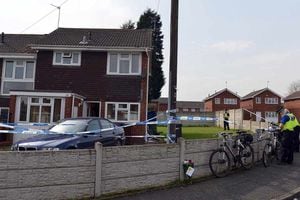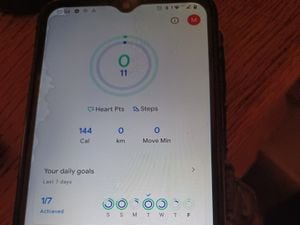Wolverhampton wife murder: Agencies vow to learn from tragedy after report reveals missed chances to help victim
"This homicide might have been prevented." This was the damning verdict of a report investigating the murder of mother of three Kanwal Azam.

Mrs Azam, who was 36 when she died, was stabbed to death by her husband Suhail Azam at her home in Whitmore Reans last year.
She had previously tried to leave and divorce her estranged husband whilst he had a history of violence, having been convicted of assaulting her in 2003.
Azam was sentenced to life in prison for her murder with a minimum of 17 years, but a new report released yesterday has revealed that Mrs Azam could have been saved if local services designed to support the mother of three had not missed opportunities to identify her as high risk.
West Midlands Police were informed of threats to kill Mrs Azam on at least five occasions, the report states, but that on the first occasion no risk assessment was carried out. The next three occasions the assessment was carried out but Mrs Azam was concluded to be a 'standard risk victim', something the report describes as 'incorrect'.
Mrs Azam told police in 2011 that Azam was threatening to kill her, was emotionally abusive to her and that she wanted to leave him but was afraid to do so because she didn't know where to turn and he controlled her finances.

But it was only on March 8 2014, some three years after she reported these concerns and after more allegations of assault, that she was deemed a medium risk.
On this night Azam constantly rang his wife threatening to kill her and accusing her of having an affair.
When Mrs Azam was referred to The Haven, a women's refuge in Wolverhampton, six days later she was identified as high-risk.
The report is clear that if she was identified as high risk on March 8 by the police, then 'agencies might have been able to implement measures to safeguard her and prevent the homicide'.
However The Haven was also criticised for not picking up that Mrs Azam was high risk more quickly.
Despite the report clearly stating that 'practices in Children's Social Care have already changed in a number of ways to improve responses', the department is heavily criticised in the report for the death of Mrs Azam.
The threats involved Azam threatening to stab and shoot Mrs Azam and the report says that if the police had known about the firearms threat and the risk was deemed credible then Mrs Azam 'would have been graded as a high-risk victim and referred to A Multi Agency Risk Assessment Conference (MARAC).'
The police notified the service of the historic abuse in May 2009 and of all further call outs up to but not including March 8 2014 yet none of these 'led to a strategy discussion and the initiation of child protection proceedings' despite the report saying 'there was sufficient evidence to justify a strategy discussion on every occasion'.
The report deemed the quality of initial assessments by Children's Social Care as 'inadequate' and risk assessment across agencies generally as 'poor'.
Royal Wolverhampton NHS Trust is another service mentioned in the report as it failed to refer Mrs Azam to specialist services after she mentioned the domestic abuse during routine health care in 2011.
Chairman of the Safer Wolverhampton Partnership, an umbrella group acting on behalf of all the agencies involved, Linda Saunders said: "This was a tragic case, and on behalf of members of the Safer Wolverhampton Partnership I would like to express our sincere condolences to the children, family members and friends of the victim.
"The review makes important and challenging reading for the agencies concerned, but by commissioning it, the Safer Wolverhampton Partnership has made clear its determination to learn from this incident, and how seriously it takes the issue of tackling domestic-related violence and abuse in Wolverhampton.
"The report makes a number of strategic recommendations which the Safer Wolverhampton Partnership is acting upon, including improving understanding of domestic abuse and safety planning among professionals, improving the quality of risk assessments and strengthening referral procedures for high risk cases.
"Most of these recommendations have already been implemented, with the remainder due to be completed in the coming months."





